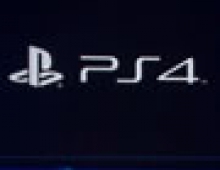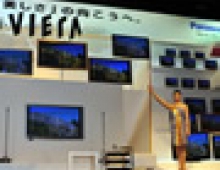
Hackers add Web, chat to PSP video game player
Sony's PSP is turning into a great tool for Web browsing, comics
reading and online chat -- and it also happens to play video games, movies and music, if you prefer
that sort of thing.
The $249 PSP handheld video game player went on sale in the US on 24 March, and it took very
little time before techies added the kinds of functions to the PSP that Sony did not include -- and
may never have intended. One man needed only 24 hours to get a working client for Internet Relay
Chat, or IRC, an older messaging platform.
"I was on IRC, and someone mentioned how cool it would be to use their PSP on WiFi at Starbucks to talk to people over IRC. I said, 'I can do that', so I began working on it immediately," said Robert Balousek, creator of PSPIRC (http://www.pspirc.com), in an e-mail interview.
Balousek said as many as 100 000 people may have visited the IRC client, and he is starting work on a new project that would let PSP users chat on the AOL Instant Messenger network.
Hacking new video game hardware is old hat -- rare is the console that does not get its own version of the Linux operating system from enterprising developers. But the gaming and hacking communities embraced the PSP with speed rarely seen in the console world -- a nod, perhaps, to its portability.
Other "hacks" include a way to transfer TV shows recorded by the TiVo digital video recorder to the PSP (http://www.zatznotfunny.com/ttg.htm#psp); a program for reading ebooks, (http://gamefries.blogspot.com/2005/03/how-to-get-e-books-on-your-psp.html); and a viewer for comics downloaded from the Internet (http://www.8bitjoystick.com/archives/jake_how_to_read_web_ comics_on_a_playstation_portable.php).
Much of the new PSP functionality comes from using the Web browser built into the racing game "Wipeout Pure", which was meant to go to a Sony site. By changing some of the PSP's network settings, the browser can be pointed to an Internet portal.
A number of people have already set up such portals, formatted to fit in the PSP's screen and offering links and a place to enter Web addresses. The technology blog Engadget has rounded up a number of those links.
Sony Computer Entertainment of America, the Japanese conglomerate's US gaming unit, did not respond to requests for comment.
But the tinkerers suggest Sony probably did not have their work in mind when they released the PSP. Balousek said the company had only left small loopholes for outsiders to use.
The development community wishes that would change, as evidenced by an open plea to Sony posted on 5 April on the Web site PS2dev.org (http://www.ps2dev.org), which is dedicated to the development of open source software projects for the PS2.
"I suggest to Sony that they should work with us to develop a method to allow home-brew software using technology to protect Sony copyrights," the site's editor "Oobles" wrote.
"I was on IRC, and someone mentioned how cool it would be to use their PSP on WiFi at Starbucks to talk to people over IRC. I said, 'I can do that', so I began working on it immediately," said Robert Balousek, creator of PSPIRC (http://www.pspirc.com), in an e-mail interview.
Balousek said as many as 100 000 people may have visited the IRC client, and he is starting work on a new project that would let PSP users chat on the AOL Instant Messenger network.
Hacking new video game hardware is old hat -- rare is the console that does not get its own version of the Linux operating system from enterprising developers. But the gaming and hacking communities embraced the PSP with speed rarely seen in the console world -- a nod, perhaps, to its portability.
Other "hacks" include a way to transfer TV shows recorded by the TiVo digital video recorder to the PSP (http://www.zatznotfunny.com/ttg.htm#psp); a program for reading ebooks, (http://gamefries.blogspot.com/2005/03/how-to-get-e-books-on-your-psp.html); and a viewer for comics downloaded from the Internet (http://www.8bitjoystick.com/archives/jake_how_to_read_web_ comics_on_a_playstation_portable.php).
Much of the new PSP functionality comes from using the Web browser built into the racing game "Wipeout Pure", which was meant to go to a Sony site. By changing some of the PSP's network settings, the browser can be pointed to an Internet portal.
A number of people have already set up such portals, formatted to fit in the PSP's screen and offering links and a place to enter Web addresses. The technology blog Engadget has rounded up a number of those links.
Sony Computer Entertainment of America, the Japanese conglomerate's US gaming unit, did not respond to requests for comment.
But the tinkerers suggest Sony probably did not have their work in mind when they released the PSP. Balousek said the company had only left small loopholes for outsiders to use.
The development community wishes that would change, as evidenced by an open plea to Sony posted on 5 April on the Web site PS2dev.org (http://www.ps2dev.org), which is dedicated to the development of open source software projects for the PS2.
"I suggest to Sony that they should work with us to develop a method to allow home-brew software using technology to protect Sony copyrights," the site's editor "Oobles" wrote.



















